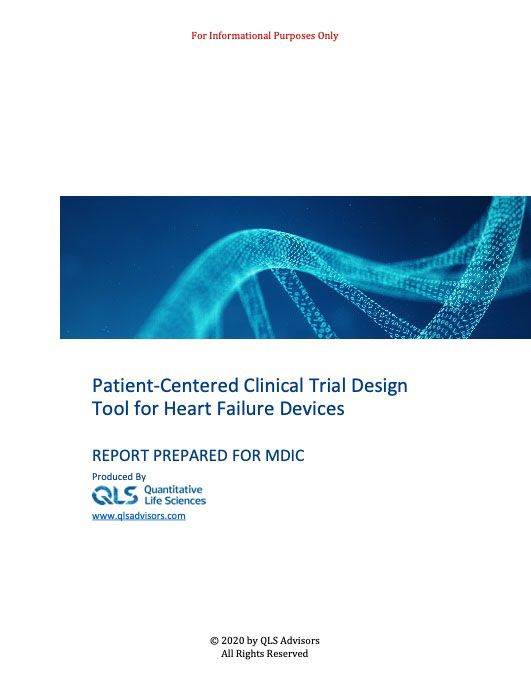As part of its heart failure project, MDIC’s multi-stakeholder group of experts published this manuscript in addition to this Methods Report to advance robust discussion about opportunities to incorporate the views of patients in clinical development of medical...
Project: Bayesian Decision Analysis (BDA) Framework
Experts in health economics have been researching statistical approaches to quantitatively link patient preference information to levels of uncertainty. A Bayesian decision analysis (BDA) framework has been proposed by MIT researchers and utilized as a methodology to develop patient-centered significance level thresholds by incorporating patient preference information into clinical trial design.
Full Summary
With the advent of innovative clinical trial designs and new approaches for data analysis, device developers have been exploring ways to leverage patient preference information (PPI) studies to inform trial design, with an increasing focus on PPI’s impact on statistical considerations. The BDA framework provides a systematic, quantitative, and transparent approach to setting the statistical significance threshold for a clinical trials using insights gathered from the patient population under study. The BDA framework provides insight into ways that large clinical trials, while developing significant amounts of evidence, could unnecessarily delay patient access to effective treatments and result in failure to approve a device that could be acceptable for use in a subset of patients with a given disease. MDIC applied a BDA framework to its Parkinson’s disease and heart failure case studies.
Bayesian Decision Analysis (BDA) Framework

Patient-Centered Clinical Trial Design Tool for Heart Failure Devices Methods Report
Clinical trials are designed based on a statistical approach to gain confidence that a product is safe and effective. However, traditionally, these statistical considerations have not quantitatively incorporated patients perspectives on benefit-risk tradeofffs. For...
